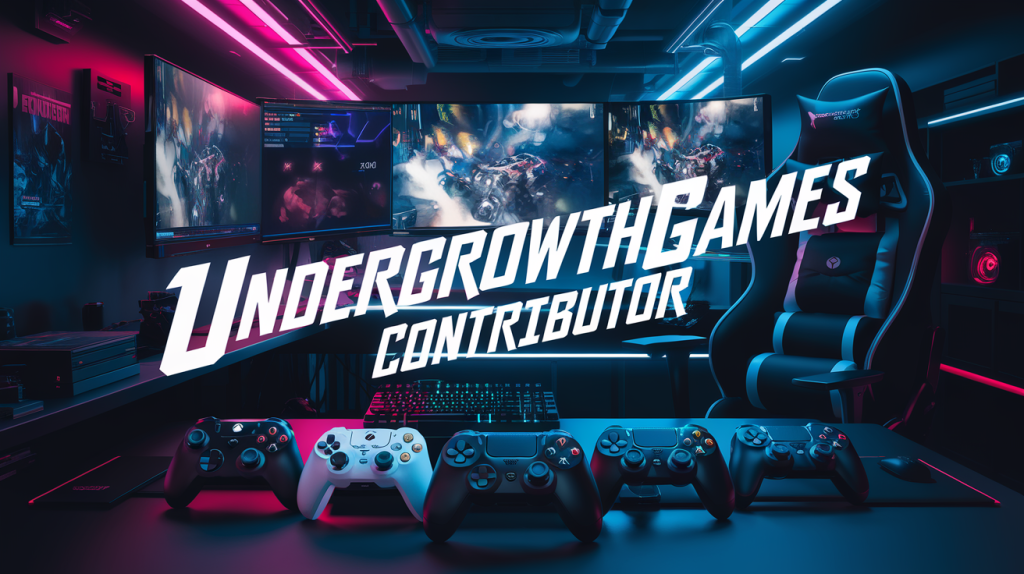In the ever-evolving landscape of indie game development, few platforms stand out like Undergrowthgames. As a hub for creative minds, coders, and gaming enthusiasts, it offers a space for contributors to share, build, and shape games collaboratively. But what exactly does it mean to be an Undergrowthgames contributor? Let’s explore their role, responsibilities, and impact.
Contributor Profile Biographie Table
| Field | Details |
| Role | Undergrowthgames Contributor |
| Primary Focus | Indie game development & content sharing |
| Skills Needed | Programming, design, storytelling, QA |
| Platform | Undergrowthgames |
| Common Tools | Unity, Unreal Engine, Godot, C#, Blender |
| Contributions | Code, assets, articles, tutorials |
| Community Role | Developer, tester, or creative partner |
| Location | Global (online-based community) |
| Notable Projects | Varies per contributor |
What Is an Undergrowthgames Contributor?
An Undergrowthgames contributor is a member of the Undergrowthgames community who actively participates in game development by offering skills such as coding, artwork, design, testing, or writing. Contributors work on various projects, collaborate with others, and enhance the overall ecosystem with their creativity.
How Do Contributors Engage With the Community?
Contributors may write dev blogs, share open-source code, offer feedback on games in progress, or publish tutorials. These interactions enrich the community and offer newcomers valuable learning material. The collaborative spirit is the heartbeat of the platform.
Skills Required to Be an Effective Contributor
While formal qualifications are not mandatory, successful contributors typically possess:
- Technical Skills: Experience with programming languages like C#, Python, or C++.
- Creative Skills: Game art, character design, or storytelling.
- Soft Skills: Communication, feedback sharing, teamwork.
The diversity of skills allows for a wide range of contribution styles.
Tools and Platforms Commonly Used
Many contributors rely on powerful tools to bring their ideas to life. Popular ones include:
- Unity or Unreal Engine: For full-scale game builds.
- Godot: Lightweight and open-source for 2D/3D games.
- Blender: For 3D modeling and animation.
- GitHub: For version control and collaboration.
- Trello/Discord: For project management and communication.
Using these tools streamlines development and fosters better collaboration.
Benefits of Becoming a Contributor
There are multiple advantages to contributing:
- Skill Development: Gain hands-on experience in real game projects.
- Networking: Connect with fellow developers and industry peers.
- Portfolio Building: Contribute to real-world games for future job opportunities.
- Recognition: Get credited in game titles or community highlights.
The learning curve may be steep, but the rewards are immense for passionate developers.
Real-World Examples of Contributions
Some notable areas where contributors make an impact include:
- Bug Fixing: Helping other devs polish gameplay by identifying and resolving issues.
- Art Assets: Sharing sprites, backgrounds, and 3D models.
- Documentation: Writing guides for new users or explaining how code works.
- Mini Games: Publishing original games as examples or tutorials.
These real-world contributions directly support and enhance the community’s creative output.
How to Become an Undergrowthgames Contributor
The path to contribution typically involves:
- Creating an Account on the Undergrowthgames platform.
- Joining the Community Forum or Discord server.
- Sharing Initial Work (game prototype, tutorial, or script).
- Engaging with Others through feedback, collaboration, or mentorship.
- Joining Projects or starting your own.
Consistency and enthusiasm are key to growing as a respected contributor.
Contributor Recognition and Growth Opportunities
Top contributors are often spotlighted in newsletters or featured on the site’s homepage. In some cases, contributors may be invited to collaborate on larger funded projects or receive offers from indie studios. It’s not uncommon to transition from contributor to professional developer.
Why Undergrowthgames Needs Contributors
Undergrowthgames thrives because of its community-first model. Contributors keep the platform vibrant by:
- Pushing innovation.
- Solving technical problems.
- Mentoring newcomers.
- Building a rich library of assets and knowledge.
Without them, the platform would be a static archive rather than a living, growing community.
Challenges Contributors May Face
While rewarding, contributors might encounter:
- Time Management Issues: Balancing work, study, and contributions.
- Burnout: Taking on too many projects without breaks.
- Impostor Syndrome: Feeling unqualified despite valuable contributions.
The key is to manage workload wisely and seek support when needed.
Community Support for Contributors
The Undergrowthgames community offers:
- Mentorship Programs
- Developer Challenges
- Weekly Showcases
- Q&A Forums
These resources help contributors stay engaged, inspired, and connected.
Final Thoughts on Being an Undergrowthgames Contributor
Becoming an Undergrowthgames contributor is more than just joining a platform—it’s about becoming part of a movement. Whether you’re building the next great indie title or helping someone else reach their dream, your contributions matter. If you’re passionate about game development and community-driven projects, Undergrowthgames is a great place to grow.
Read more: Mashable Connections Hint Today: Boost Your Puzzle Solving Skills Instantly
FAQs About Undergrowthgames Contributor
They assist in game development through coding, designing, testing, and community engagement.
No. Passion, curiosity, and willingness to learn are often enough to start.
Absolutely. Artists, writers, testers, and project managers are all welcome.
Through project credits, featured posts, and community shout-outs.
Usually, contributions are voluntary, but paid opportunities may arise in some collaborations.
Sign up, join the forum or Discord, and begin sharing or collaborating on projects.



